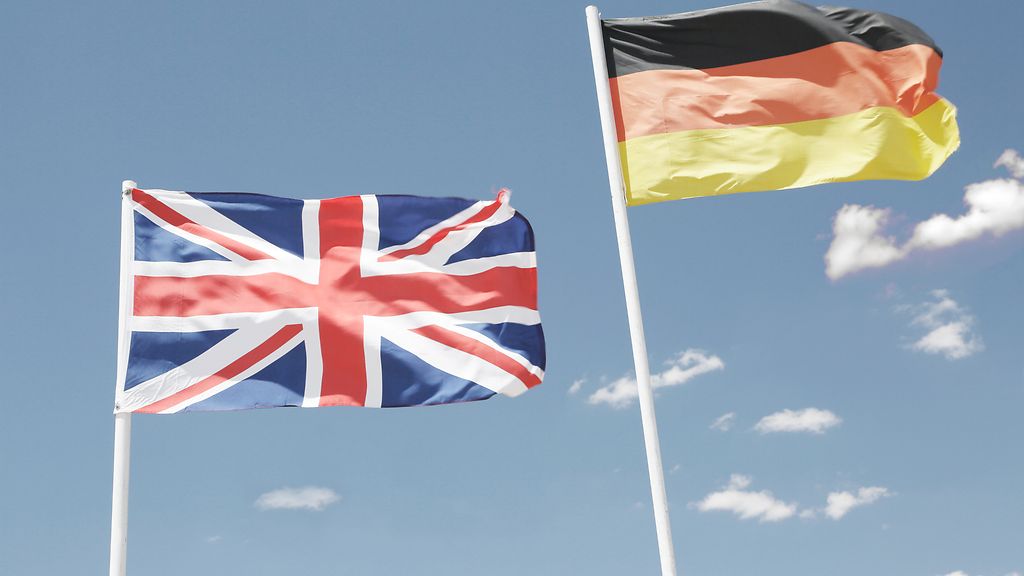Berlin and London join forces: new agreement brings Europe closer to common defence
22 October 2024 14:21 OPINION
OPINION
Berlin and London will sign an important defence agreement this week.
It will allow them to participate in joint exercises near the borders of Russia, share intelligence, and initiate energy programmes (what other energy sector in Europe is under fire but ours?)
In addition, they will cooperate on the development of new weapons. here, NATO’s programmes are quite conservative and require the approval of all members, which is not always convenient.
This treaty will be the gateway to a larger agreement next year, possibly on joint defence.
Forward presence on the Estonian direction
Also during last week’s two-day NATO summit in Brussels, it was agreed that British forces in Estonia will receive strike UAVs and undergo drone warfare training.
The British have deployed a battlegroup in Estonia consisting of units of a Welsh regiment battalion and a hussar tank regiment battalion, all of which are organisationally part of the 1st Infantry Brigade of Estonia.
This is the so-called “forward presence” of NATO, based on the “North East” headquarters in Elbląg.
The forward group will be expanded to a brigade in the event of an escalation. In addition, London has recently appointed a new brigade that will reach operational readiness from 2025 and will be ready to deploy to the region within 10-14 days.
In addition, the theatre of operations will have a stockpile of equipment, including Challenger 3 tanks, Archer self-propelled artillery systems and Boxer armoured personnel carriers, which can be deployed by air within 48 hours and be quickly set up.
That is, a heavy mechanical brigade (staffed) will operate in the region with the ability to quickly deploy assistance. In the event of war, we are counting on one more.
At the very least, the Baltic Tiger exercise is aimed at this scenario – protecting the perimeter of the Emari airbase and the port of Tallinn, for an air and sea bridge with partners.
Follow us on Telegram: the main news in a nutshell
A new arms race
This agreement is an important moment for us. Firstly, any arms development now concerns us. This is the current situation. For example, Ukraine has received 36 operational self-propelled artillery systems and 12 donor AC-90s, while the UK itself has 57 in service.
According to official London briefings, the UK will take part in a consortium of countries from Italy, Poland, France and Germany to develop long-range missiles for Ukraine and NATO.
There are no details, except that it is a land-based missile. But they are likely to go for a lower price plus increased EW resistance – perhaps a couple of redundant systems. No special accuracy is required – no special technology is needed to hit the arsenal or the giant factories of the Russian Federation.
The gaps that have been identified in the stockpile – 200-250 Taurus missiles out of 600 produced (Germany is not handing them over to us out of natural malevolence – they simply will not have new products in the coming months) – will gradually be closed.
Secondly, Moscow will be forced to enter an arms race if it deploys additional forces – already now, the balance of forces in the region is approximately 1 to 1 by brigade. It is impossible to attack in this form, and it is impossible to threaten an offensive.
The mixing of combat groups, with the United States stationed in Poland, France in Romania, and Britain in Estonia, is also important. In the event of war, these units will immediately begin to suffer losses, coffins with flags will go home to voters, and there will be no more concern and no more ten approvals.
And these are nuclear powers, Britain and France have three aircraft carriers and two dozen combat-ready nuclear submarines. It’s one thing to talk about nuclear ash on TV, but it’s another thing to get involved in combat.
Benefits for Ukraine
The issue here is not even that if Trump wins, changes in the Alliance may begin.
The point is that consensus on Ukraine will not always be reached in the long run. Why does the notional Portugal need additional spending on arms development? Hungary wants Russian money for nuclear power plants, not to pay for our energy. Turkey is blocking Sweden because activists burned the Koran there. There may be various obstacles even beyond the hypothetical reformatting of the Alliance.
That’s why this treaty is good for us – if Russia rattles its weapons near NATO’s borders, Germany and Britain will now be able to deploy additional high-readiness forces in the region under the pretext of exercises. This means more flights of reconnaissance aircraft, AWACS, and satellite time.
And, of course, the weapons that will be tested here and used to deter Russia after the second campaign.
And if the time comes for difficult rapid action, it will be good if the first European economies can act quickly. Without bureaucracy and approvals from states whose interests are to delay the issue as much as possible.
Follow us on Telegram: the main news in a nutshell
Author: Kyrylo Danylchenko, military expert









